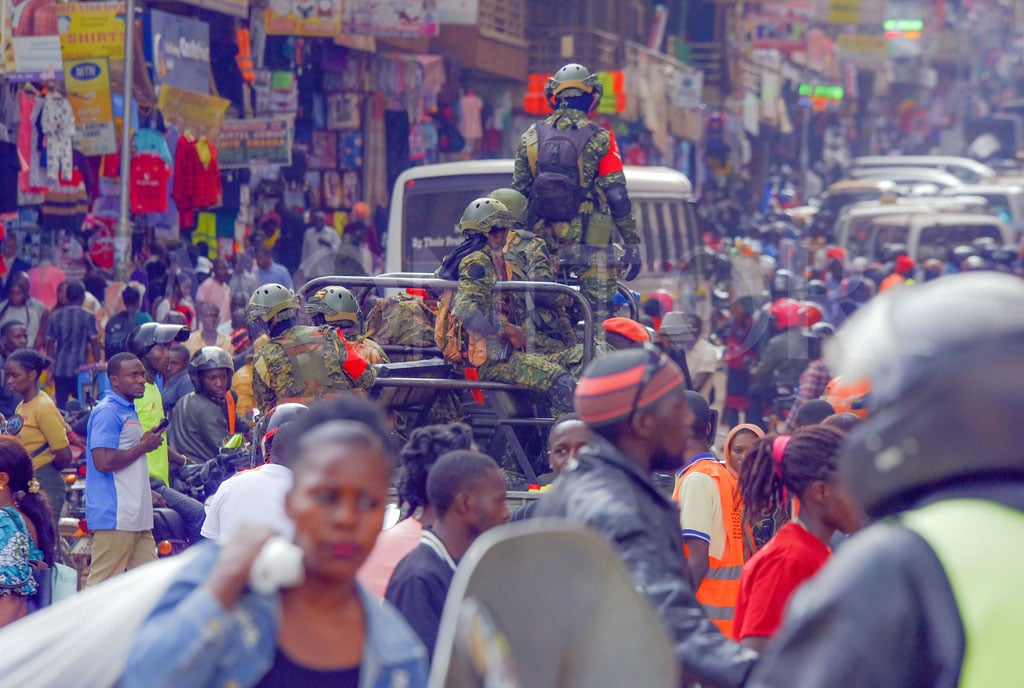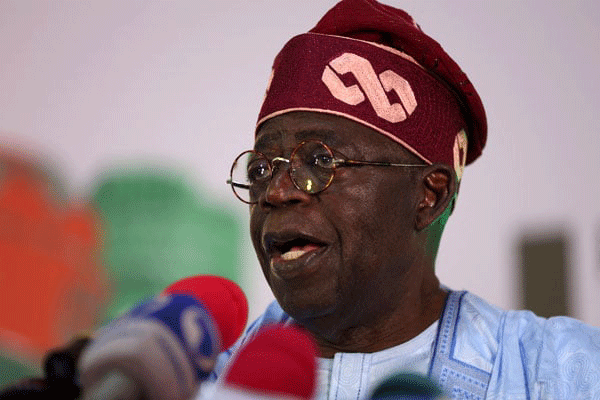Listen to youths or risk revolts, former PM Rugunda warns

Former Prime Minister Dr Ruhakana Rugunda addresses African youths during the intergenerational conference in Kampala on November 12, 2024. PHOTO/KARIM MUYOBO
What you need to know:
- The African Union says the continent has the youngest population in the world with more than 400 million young people aged between the ages of 15 to 35 years.
Uganda’s former premier has warned that unless African leaders and governments listen to the youth, they risk creating a significant divide, clashes and revolts.
Dr Ruhakana Rugunda, who spoke during the third Intergenerational Dialogue for young people from across Africa gathered in Kampala on Tuesday, urged African governments to reaffirm their commitment to addressing the needs of young people.
The youth had convened to discuss bridging the intergenerational gap in their countries.
“We, the elders—and I speak on behalf of my colleagues, the COMESA elders and governments—endorse this [dialogue] because it is the only logical way forward. If not, we risk creating a significant divide among people within the same country, within COMESA, which could eventually lead to major clashes and revolutions in our respective countries,” he warned.
Dr Rugunda said Africa has over 600 million young people, the highest number in the world.
“We are dealing with millions of young people and millions of Africans. This is a vital constituency; a critical component of Africa, which we must endeavour to galvanise, mobilise, and strengthen so that we can play our rightful role on our continent. Let’s encourage the practice of listening to each other,” he said.
The former prime minister said the older generation is not as well informed as the younger generation, especially in the current era of artificial intelligence and instant electronic communication.
“You are well-informed and energetic, and if organised, the youth can tackle the challenges that African countries face. Thus, this interaction is mutually beneficial, enabling the older generation to learn from the younger generation, so we all benefit. COMESA, now 30 years old, has evolved from the Preferential Trade Area (PTA) to the financial trade area,” he said.
Dr Rugunda also urged the youth across Africa to borrow from the older generations the methods used to liberate their countries from exploitive imperialists.

Security personnel arrest a demonstrator during the March to Parliament anti-graft protests in Kampala on July 23, 2024. PHOTO/MICHAEL KAKUMIRIZI
While reflecting on Africa's history, Rugunda said: “Some of the most significant contributors to the continent started at a young age, younger than most of you. When we look at the history of [Nelson] Mandela and [Robert] Mugabe — many began building their countries in their twenties. You are mature enough to play a catalytic role in transforming our continent.”
Both Mandela and Mugabe were black freedom fighters who led their countries to independence and black majority rule.
At the same dialogue, Ms Angel Mbuthia, the chairperson of the COMESA Youth Advisory Panel in Kenya, said the intergenerational conflict in Kenya, sparked by Gen Z protests arose from the younger generation feeling unheard by the status quo, leading to protests that shocked not only the continent but the world.
“Our analysis shows that decision-making spaces are stifled by a lack of interaction between generations, leading to intergenerational conflicts within our communities. This is why even the political environment becomes very hostile for young people,” Ms Mbuthia said.
She added: “One way to break down these walls of conflict is by ensuring that young people and elders come together at the same table, so that young people are not seen as threats, and the elders come to appreciate the brilliance and strength that youth bring to our respective countries.”

Military men surveil downtown Kampala on July 24, 2024 in the aftermath of the July 23, 2024 March to parliament protests which were managed by security forces with no reports of use of live rounds or teargas to disperse or arrest demonstrators. PHOTO/MICHAEL KAKUMIRIZI
Mr Jacob Eyeru, the chairperson of the Uganda National Youth Council, highlighted the differences in knowledge, access to information, and basic life needs between today’s 30-year-olds and those of the 1990s.
“If you are in power at 70 years, it means you gained power in 1970, and life was different then. The economic hardships were also different, which is why we want to sit at the same table at a regional level. We believe we are facing the same challenges as youth across Africa,” Mr Eyeru said.
Youth-led protests
In July, young Ugandans took to the streets to protest alleged corruption by elected leaders in the country, especially Parliament, drawing inspiration from weeks of youth–led protests in neighbouring Kenya that led President Willaim Samoei Ruto to scrap proposed tax hikes and dissolve his Cabinet of close to two years.
In response, the Ugandan government deployed police and soldiers across Kampala City, and particularly at Parliament. Police arrested hundreds of youths, who were charged and later remanded.
In June, young Kenyans, mostly belonging to the Generation Z, swarmed various streets to express their displeasure with the controversial Finance Bill, 2024 that proposed an increase in taxes. Demonstrations took place Nairobi, Kisumu, Mombasa, Eldoret, Nakuru, Kericho, Lodwar, Kilifi, Nyeri, Meru, Embu, Nanyuki, Kisii, Kakamega, Machakos, Taita Taveta and Kiambu counties.

People run to take cover from teargas fired by Kenya Police officers during protests in Nairobi, Kenya on March 20, 2023. PHOTO/AFP
Meanwhile, in August, protesters demonstrated in several Nigerian cities, including Lagos and Abuja, to show discontent with economic reforms that they said had led to rampant inflation and increased costs of living for ordinary citizens.
However, President Bola Tinubu vowed to pursue the changes such as the removal of fuel subsidies, which he said were needed to keep the country afloat. Nigeria charged 76 people, including 30 minors, with treason and inciting a military coup after they took part in the August protests.

Nigeria's President Bola Ahmed Tinubu (pictured) is current chair of ECOWAS. PHOTO | AFP
Nigeria is currently grappling with high costs of living and widespread insecurity, with armed gangs kidnapping residents and school children for ransom in the northern region. Last week, President Tinubu ordered the immediate release of the minors detained during August anti-government protests in August following outrage and condemnation over their trial in court by activists.T



